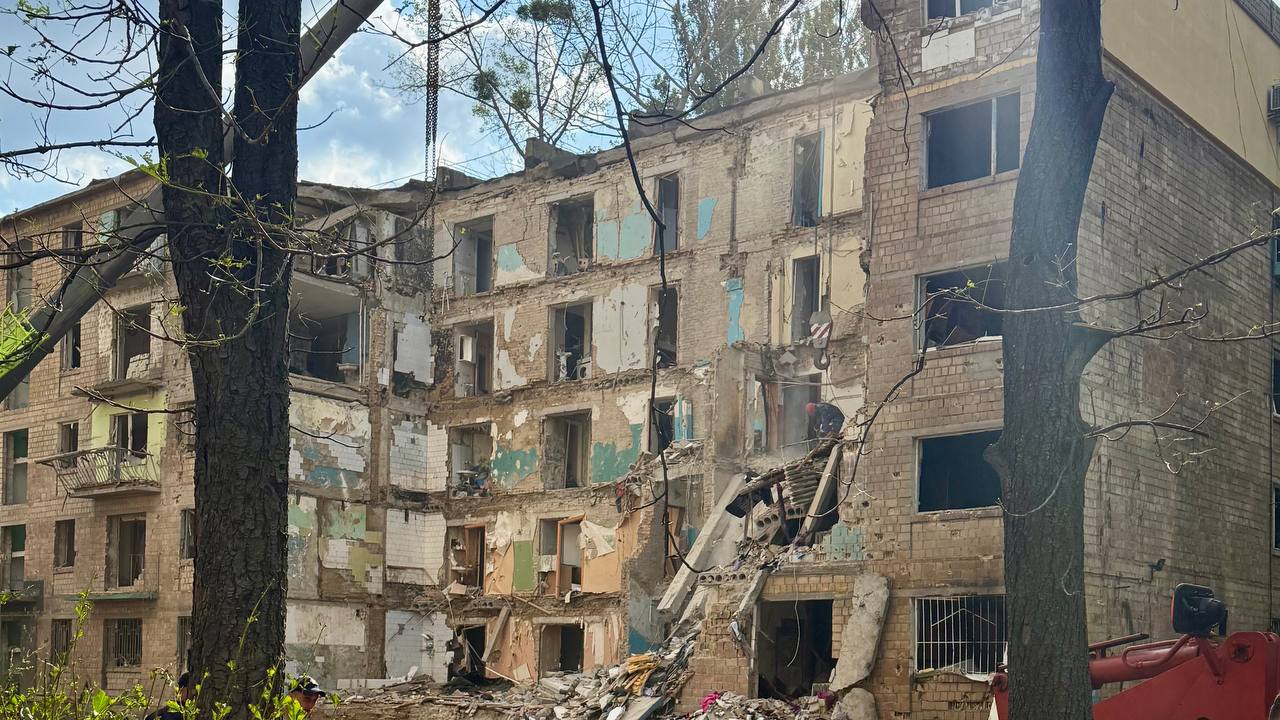
On February 24, 2022, the Russian assault on Ukraine irrevocably changed the lives of the people of Ukraine. Borys Filatov, Mayor of Dnipro, writes:
“the world we used to live in collapsed after the first missile strike on February 24. Everything that used to matter, stopped being important and became the thing of the past.”

A recent UN survey reports that Ukrainian people believe that the most significant impact of the war is on their mental health. This is reflected in the voices that have emerged from Ukraine. In her warcoffee blog, Yaroslava Antipina* vividly documents the experience of living through the war. She describes endless sleepless nights when Russian missiles and drones attack, air raid sirens ceaselessly warn and debris falls on homes. She articulates the grief of a nation under siege:
“I am feeling sad. Better to say, today I have my soul raining… I forgot the word 'happiness'. How it smells? What does it look like? Is it tasty, tiny, or colorful? Here we are dressed in the war. The war has one color: the color of losses.”
Kate from Kharkiv voices the loss and uncertainty that have become a part of every day for Ukrainian citizens:
“How many more years of school will our children miss? How many more warriors will pay with their lives for each of our days? And how many civilians? Will my family make it, will I?”
Speaking at the 75th World Health Assembly, Olena Zelenska, the First Lady of Ukraine, identified the critical need for international support:
“The war unleashed by Russia showed us horrors that we could not even imagine… Not a single Ukrainian – neither a child nor an adult – is sure that tomorrow they will simply wakeup, that a rocket will not hit the house where this person lives.”
The devastating toll of war on a nation’s mental health is well documented, with 1 in 4 likely to be affected by PTSD, depression, anxiety or schizophrenia. For veterans, these figures are even higher; a recent study found that 57% of Ukrainian veterans needed psychological support. The World Health Organisation estimates that over 9 million Ukrainians are currently at risk of developing severe mental health conditions.
Children and adolescents are at high risk of experiencing psychological distress. Recent research on the effects of the war on Ukrainian adolescents found that 60% had witnessed armed attacks, 14% had been victims of violence and 30% had been forced to leave their homes. Lack of social support and forced relocation were associated with high levels of psychological distress. Olena Rozvadovska, co-founder with Azad Safarov of the charity Voices for Children, describes the dreams and hopes of Ukrainian children:
“All voices are now about victory. If you ask any child what he or she dreams about, or what he or she draws, you will definitely hear in response: Victory’. It is very important for them to see the end of the war.”

How Volunteers Can Support Mental Health
Access to basic physical needs such as food, shelter, clothing and medical supplies are critical to promoting and protecting mental health. Community support is also vital, building resilience to stress and protecting from trauma-related conditions.
Community hubs such as Front Line Kitchen and Hell’s Kitchen are pivotal to collecting and distributing goods and preparing meals for military personnel and civilians alike. Contact and support from these community hubs acts as a protection from isolation. You can help to sustain and nourish Ukrainian communities by helping out at these vital community centres, where volunteers play a key role in preparing and enabling basic supplies to reach those in need.
Volunteering at organisations that are working to rebuild Ukraine, such as Brave to Rebuild, who repair vital infrastructure, helps Ukraine look towards and prepare for a future without war.
Projects such as Make it Possible focus on the emotional well-being of displaced children and adolescents, providing opportunities for education, creativity and a sense of belonging to a community. Here, volunteers are needed to provide English lessons for the children and take part in creative workshops.

Volunteering is Good for You Too!

There is clear evidence that volunteering has huge positive effects on the mental health of volunteers themselves. Volunteering has been shown to build resilience, reduce isolation, and increase confidence, while protecting from declines in mental health. Making new friends, sharing your skills or learning new ones enhances confidence and positivity. Volunteering is an opportunity to increase your own and the well-being of the people of Ukraine.
* A big thank you to Yaroslava and Kate for allowing us to use their material in this article.
.jpg)
Koridor UA Volunteers Bring Hope Back to Mykolaiv and Odesa – August 2025
Ukraine’s recovery is being built not only with bricks and mortar, but with the hands and hearts of volunteers. Every wall demolished, every roof repaired, every shelter opened is a reminder...

Volunteering in Ukraine: Building a Safe Future for Children in Korolivka
Since the start of Russia’s full-scale invasion, Ukraine has faced devastating damage to schools, hospitals, and communities. Yet through the power of international volunteers and NGOs, hope is being rebuilt every day. One inspiring example...

The Power of Action: How Volunteers Save Kyiv After Attacks
When Kyiv is hit by another attack, the first to arrive—often even before the official rescue services—are volunteers. They aren’t called by authorities, they aren’t bound by contracts, and they don’t work for recognition...








